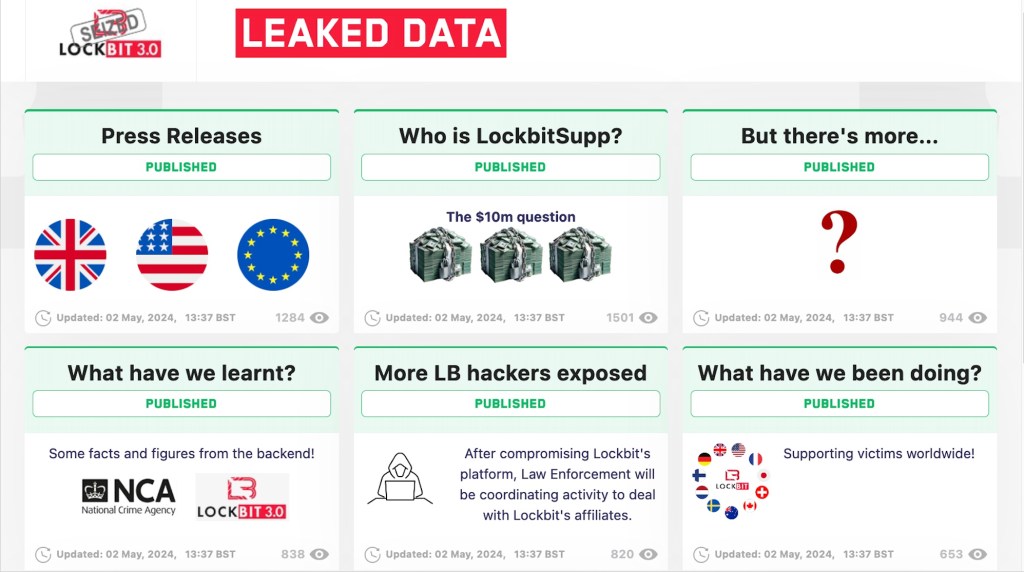It seems like every time a demo day ends, there’s a new one waiting around the corner — and as you know, TechCrunch is no stranger to covering them.
Oftentimes these events are filled with traditional seed-stage tech companies based in Silicon Valley. But today we’re highlighting the demo day for a new wave of crypto projects and teams who participated in the latest cohort for Alliance DAO, a web3 accelerator and builder community.
The program has cohorts three times a year for 10 weeks, Qiao Wang, a core contributor at Alliance DAO, said during the event. “Startups from all stages have joined our cohort, from those with just an idea to billion-dollar companies.”
The accelerator collected mentors and speakers like Ryan Wyatt, CEO of Polygon Studios, and Jeff “Jiho” Zirlin, co-founder of Axie Infinity, to help guide the cohort.
While 24 teams were admitted into the cohort, only 16 teams graduated. About three-fourths of the teams are focusing on NFTs, infrastructure or decentralized finance (DeFi), while the majority of the teams are building on layer-1 blockchains Ethereum, Polygon and Solana.
The cohort’s theses focused on market-driven DeFi, client-driven social protocols, tokens-as-coordination mechanisms, decentralization of all layers, consumer products unbundling, DAOs as risk-pooling mechanisms and so on.
Here’s the breakdown behind the 16 startups:
Company name: Lulo
What it does: Decentralized order book for loans
Founders: Daniel Garay, Jesse Brauner
Stage: Seed round
The pitch: Lulo is a DeFi lending infrastructure that aims to utilize order book technology to create a global liquidity layer in a permissionless way. It provides “liquidity-as-a-service” so users can integrate DeFi protocols with global lending platforms. It claims that by removing pooled risk, lenders and borrowers can receive competitive rates for their loans so there isn’t a borrow-deposit spread.
Company name: LiquiFi
What it does: Carta for web3
Founders: Oliver Tang, Robin Ji
Stage: Seed round
The pitch: LiquiFi aims to automate token vesting and operations for web3 products and entities across all major blockchains, including Ethereum, Avalanche, BNB Chain, Polygon, Solana and others. Nearly all web3 products offer token rewards, but consumers and companies tracking and transferring tokens can be painful, risky and unscalable, co-founder Robin Ji said. LiquiFi aims to stay on top of all the tokens through its smart contracts, which have been audited a number of times and through an interface that allows users to track their investments. “The strategy is staying on top of all the trends so other companies don’t have to,” Ji said. “The more challenging it is, the more you need a dedicated provider to focus on this problem.” To date, the company raised $5 million in a seed round.
Company name: fam.
What it does: Exclusive social clubs on top of NFTs
Founders: Chris Tam, Shuguo Yang, Wallace Wong
Stage: Seed round
The pitch: The NFT market has exploded and the communities surrounding them have flourished, co-founder Chris Tam said. But the current Web 2.0 platforms that exist today for communication, like Twitter or Discord, “don’t work” due to unrelated content and spam, according to Tam. This startup aims to build an app that can host social clubs on top of the NFTs themselves so holders can connect to communities through their crypto wallets. Individuals can chat, vote, attend events and showcase their lifestyles through the platform to others involved in the same NFT collections. It previously raised a pre-seed round from Sequoia Capital, Alliance DAO, Xoogler and others.
Company name: PwnedNoMore
What it does: White hats automating code reviews
Founders: Wen Xu, Conan Zhou, Mike Yan, Oriol Plazas
Stage: Seed round
The pitch: PwnedNoMore is a decentralized autonomous organization (DAO) created by white hat hackers that aims to help other hackers build tools and safeguards for the web3 ecosystem. It is developing a fully automated bug-hunting engine that is currently ready for Solana-based projects and plans to launch one compatible with Ethereum in August. The hackers in its DAO include six DEF CON CTF winners. To date, its community hackers have reported over 1,100 exploits and protected over $650 million crypto funds at-risk, Mike Yan, co-founder at PwnedNoMore, said. It has raised capital from Alliance DAO, dao5, IDEO CoLab and angel investors.
Company name: Leather
What it does: Watch-to-earn
Founders: Niko Cunningham, Shaminda Subasingha, Jason Kilic
Stage: Seed
The pitch: Leather is a “watch-to-earn” mobile service that aims to analyze and reward everything people watch on television in real time. Major streaming services like Netflix and Apple TV pour billions of dollars into their content budgets every year to create more targeted and personalized content, Niko Cunningham, co-founder of Leather, said. “We don’t know too much about who was in that room or who actually tuned in [to a show] or who actually cared.” Leather aims to solve that problem by allowing users to share consumption and engagement data with third parties in exchange for token rewards and ownership of Leather’s products.
Company name: Filmine
What it does: AWS for decentralized computing
Founders: Vukasin Vukoje
Stage: Seed
The pitch: Filmine is powered by Alt Labs and aims to be the AWS for decentralized computing. The company is centered around Filecoin, a decentralized storage network, and wants to help those who mine Filecoin with a more efficient method, among other things. It aims to provide miners the ability to earn 10 times more rewards through its powered-by-Filmine network, Filgram, which is a Filecoin storage provider discovery tool.
Company name: Legion DAO
What it does: Tokenized Union for professional gamers
Founders: Alex Beliankin, Alex Anikin
Stage: Seed
The pitch: Legion DAO aims to help full-time gamers monetize their hobby through tokenized unions. It plans to improve the gaming community through training gamers to become coaches and standardizing employment contracts. To date, it has 100 pro contributors, 3,000 NFT memberships and revenue dues of $2.5 million over the next 2 years, Alex Beliankin, CEO of Legion DAO, said.
As DAOs continue to blossom, here’s how to keep yours from wilting
Company name: Clique
What it does: Oracle for Web 2.0 data
Founders: Kevin Yu, Jaden Yan
Stage: Seed
The pitch: Clique is a privacy-preserving identity oracle for Web 2.0 user data. DeFi, GameFi and DAOs have been limited by the scarcity of data available on-chain, Jaden Yan, co-founder and CMO of Clique, said. But the company aims to alleviate that problem by bringing people’s online identity on Web 2.0 channels like Twitter or Discord onto blockchains. It raised its seed round in April and is backed by GGV Capital, Qiming Venture Partners, Infinity Ventures Crypto, SKy9 Capital and others.
Company name: Ajna
What it does: Decentralized lending platform without oracles
Founders: Greg DiPrisco, Ed Noepel, Akash Patel, George Niculae, Joseph Quintilian, Ian Harvey, Mike Hathaway, Matt Cushman and Howard Malzberg
Stage: Pre-seed
The pitch: Ajna protocol is a decentralized and permissionless lending platform. To date, creating a lending market has required a large pool of existing liquidity and complex governance process to manage risk, which has resulted in the majority of assets on the market today unable to be borrowed or lent, Greg DiPrisco, co-founder of the platform, said. Ajna aims to let people lend digital assets immediately without oracles, governance or gatekeepers in a permissionless market. Lenders just have to provide a price that they’re willing to lend and the platform will handle the rest, DiPrisco said. The platform is self-funded by its nine co-founders and doesn’t have plans to raise additional capital at this time.
Company name: Tilting Point
What it does: Bringing Web 2.0 games to web3
Founders: Kevin Segalla
Stage: Late stage
The pitch: Tilting Point is a publisher aiming to bring Web 2.0 games to web3. The firm aims to help simplify developers’ move to the web3 industry by handling their entire crypto strategy in exchange for future crypto revenues. It has published 41 games and is partnering with layer-2 blockchain Polygon to release 10 web3 games in the next 24 months. The company generated $200 million in revenue for 2021 and has grown five times in the past 4 years, Kevin Segalla, founder and chairman of Tilting Point, said. In July 2021 it raised $235 million from General Atlantic and is using the funds to hire developers. It is currently raising $20 million for greater web3 expansion.
Company name: Krypton
What it does: MEV-resistant decentralized exchange
Founders: Michael Nowotny, Nathan Moore
Stage: Seed
The pitch: Krypton is a decentralized exchange protocol resistant to miner extractable value (MEV). It aims to be the next-generation trading protocol for the DeFi space and protect traders from front-runners, sandwich attacks and other elements. It leverages Chainlink’s off-chain compute and flow trading to eliminate MEV, protect traders, lower trading costs and facilitate cross-chain liquidity. It won the Fall 2021 Chainlink DeFi Hackathon competition. It is currently raising a seed round led by Framework Ventures.
Company name: Parasol
What it does: Japan-focused NFT wallet
Founders: Kevin Phung, Tony Chen, Allen Guan, Louis Kang, Joi Ito
Stage: Seed
The pitch: Parasol is an NFT wallet focused on the Japanese market. Fan loyalty in Japan is supported by “Otaku” culture and brands are looking to monetize with NFTs, Kevin Phung, co-founder of Parasol, said. Parasol aims to provide “crypto-invisible” semi-custodial wallets that allow users to have ownership of assets, but with user-friendly safeguards in place. In one month since inception, over 35,000 Parasol wallets have been created to buy about 40,000 NFTs.
Proposed bipartisan US crypto bill could be ‘sigh of relief’ for the industry
Company name: Dapi
What it does: Decentralized on-ramps
Founders: Ahmed Agour, Hesham Ghandour
Stage: Seed
The pitch: Dapi is a decentralized banking API on-ramp that aims to bridge the gap between fintech applications and consumer bank accounts. Dapi is building a decentralized peer-to-peer open network bridge that uses private banking APIs like Plaid. But Dapi also uses decentralized incentives that aim to allow anyone to permissionlessly build APIs for a profit share. The platform says the array of contributors makes the network censorship-resistant. Investors include Y Combinator, Alliance DAO, Alloy Labs Alliance, Reserve, Cadenza and others.
Company name: Metavoice
What it does: Profile pictures (PFPs) for your voice
Founders: Vatsal Aggarwal, Siddharth Sharma, Tom Etminan
Stage: Seed
The pitch: Metavoice aims to provide users with the ability to have humanlike, customizable virtual voices. The product allows users to customize their voice online, which is particularly important for pseudonymous users, Tom Etminan, co-founder of Metavoice, said. Users can connect their crypto wallets and choose their voice, and it can be converted and output onto over 800 different platforms. The beta app will be released on iOS and Windows in August 2022.
Company name: Lava
What it does: Decentralized infura and marketplace for blockchain data
Founders: Yair Cleper, Gil Binder
Stage: Seed
The pitch: Lava Network aims to be a marketplace for blockchain data. It incentivizes node providers and decentralized application users to enter marketplace blockchain data onto its network. The same way Airbnb allows owners to monetize their unused space, Lava plans to allow any node operator to use their bandwidth while the protocol enforces data quality. A number of crypto entities like Algorand, Fireblocks, Messari, Avalanche, Polygon, Cosmos and more are on its waitlist. It has raised funds from investors, including Jump Crypto, PayPal, Tribe Capital, North Island Ventures and others.
Company name: Yakoa
What it does: NFT fraud detection network
Founders: Andrew Dworschak, Graham Robinson
Stage: Seed
The pitch: Yakoa aims to help detect NFT fraud. On the blockchain today, one-third of NFTs are original, one-third are direct forgeries and one-third are confusingly similar to already existing ones, resulting in millions of dollars lost daily, Andrew Dworschak, co-founder of Yakoa, said. The platform is trying to solve that problem by tracking down infringing assets across all blockchains and labeling authentic works on platforms. Its API is live and in use and has already indexed over 40 million assets.



































Comment